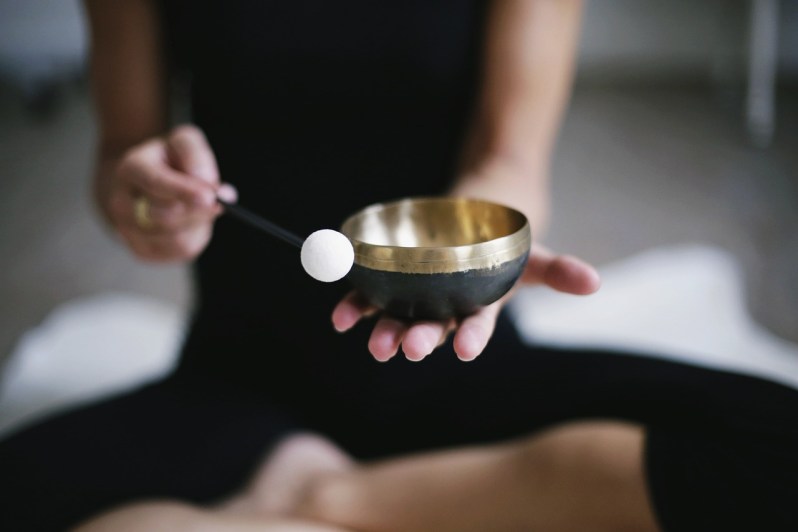
Stress is — many times — an unwanted guest that overstays its welcome in our fast-paced society. In today’s hectic world, it’s easy to feel overwhelmed and frazzled, searching for ways to find inner peace. Fortunately, the ancient practice of mindfulness offers a lifeline.
Mindfulness isn’t just an abstract notion; it’s a practical, science-backed tool that can rewire your brain and reshape how you deal with life’s challenges. From the soothing art of visualization to the profound impact of meditation, the therapeutic outlet of journaling, the revitalizing practice of physical movement, and the calming influence of mindful breathing, you’re armed with a toolkit tailored to you.
Our exploration of mindfulness isn’t merely superficial; we’ll dive headfirst into its mysteries and reveal its potent potential. Get ready for a transformative journey as we unveil not one but five practical keys to infuse mindfulness into your daily routine, enabling you to reclaim the serene kingdom of inner peace and steadfast serenity.

What is mindfulness, and how does it reduce stress?
Before we dive into the techniques, let’s clarify what mindfulness truly means. Mindfulness is the art of being fully present in the moment without judgment or distraction. It’s about paying keen attention to your thoughts, emotions, and the world around you. By doing so, you can cultivate a sense of inner calm and resilience in the face of life’s challenges.
Understanding how mindfulness works its magic on stress is crucial. We’ll explore the science and physiology behind it, shedding light on how this practice can rewire your brain for tranquility and emotional balance.
Increased resilience
Studies have shown that mindfulness can enhance your psychological resilience, making you better equipped to handle challenging situations without becoming overwhelmed.
Reduction in rumination
Rumination, or dwelling on negative thoughts, is a common contributor to stress and anxiety. Mindfulness can reduce rumination by redirecting your attention away from these thoughts.
Enhanced coping strategies
Mindfulness can provide you with new coping strategies and a different perspective on stressors. It helps you accept what you cannot change and find healthier ways to address what you can.
Decreased stress response
Mindfulness helps you develop the ability to respond to stressors in a more controlled and deliberate manner. Instead of reacting impulsively, you can choose how to respond to stress, which can reduce the intensity of your stress reactions. Mindfulness practices have been linked to lower cortisol levels, which is a hormone associated with stress. Regular mindfulness can help regulate your body’s stress response.

5 ways to incorporate mindfulness throughout your day
The practice of mindfulness reduces stress by cultivating present-moment awareness, which leads to a sense of control over one’s reactions to stressors and a greater ability to respond calmly and clearly. By promoting relaxation, regulating stress hormones, and enhancing emotional regulation, these practices reduce physiological and psychological stress. Here’s what mindfulness looks like.
Visualization
Visualization is a potent mindfulness technique backed by science. When you vividly imagine positive scenarios, your brain responds by releasing calming neurotransmitters like serotonin. This practice can alleviate anxiety and enhance your overall sense of well-being.
Visualization has more benefits than just reducing stress. It can boost confidence, improve focus, and even enhance performance in various aspects of life.
Find a quiet space, close your eyes, and visualize a peaceful scene – an empty beach or perhaps your favorite fishing hole. As if you were there, experience the sensations, sights, and sounds. Next time you have a stressful meeting, set aside five minutes beforehand to visualize and center yourself. Then, observe what happens.
Meditation
Meditation promotes relaxation and reduces the production of stress hormones like cortisol by affecting your brain’s neural pathways. As a result, the prefrontal cortex, which is responsible for rational decision-making and emotional regulation, is strengthened.
Regular meditation can lead to reduced anxiety, improved emotional well-being, and heightened self-awareness. It’s a powerful tool for managing stress.
To meditate, find a quiet space, sit comfortably, close your eyes, and focus on your breathing. When your mind wanders (and it will), gently bring your attention back to your breath. There are various meditation apps and guided sessions available to assist you.
Journaling
Journaling provides an outlet for processing emotions and reduces the emotional reactivity of the brain. Self-reflection and emotional regulation can be enhanced by writing about your feelings.
Journaling can help you gain clarity, reduce symptoms of anxiety and depression, and improve overall mental well-being.
Set aside a few minutes each day to jot down your thoughts and feelings in a journal. You can also use prompts to guide your writing, such as “What am I grateful for today?” or “What challenges did I face, and how did I overcome them?”
Physical movement
Physical activity, even in the form of a leisurely walk, triggers the release of endorphins, your body’s natural mood lifters. It also reduces cortisol levels, promoting relaxation.
Incorporating movement into your day can clear your mind, enhance your mood, and decrease stress levels. It’s a simple yet powerful way to practice mindfulness.
Aim to move your body intentionally each day, whether it’s a brisk walk during your lunch break or a short stretch session in the morning. As you walk, pay attention to the sensations of each step as well as the surroundings. Embrace the experience with all of your senses.
Breathing exercises
Conscious breathing activates the parasympathetic nervous system, promoting relaxation and reducing the “fight or flight” response associated with stress. It also improves oxygenation, which is vital for overall well-being.
Practicing mindful breathing can lower blood pressure, reduce anxiety, and enhance mental clarity. It can also be done in many different ways, and there are many different breathing techniques to choose from.
Mindfulness isn’t just some abstract notion; it’s a practical tool that can rewire your brain and reshape how you deal with life’s challenges. Begin to visualize a life with less anxiety, sharper focus, and unwavering resilience. As you make mindfulness a part of your daily schedule, these moments of calm will become more and more frequent.
When it comes to living stress-free, mindfulness is your best friend. With every breath, every step, and every word you jot down, you’re taking control of the serenity that’s rightfully yours. Stress might try to knock on your door, but now you’ve got the tools to show it who’s boss.



